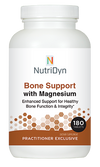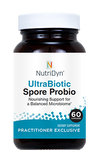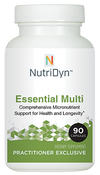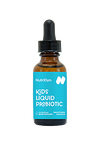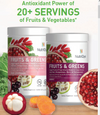Read the Nutrition Facts label and choose a product that best matches your health and nutrition goals.
All in all, eating more plants and fewer animals is good for your health and the health of the planet,
Some plant-based 'meats come close to the taste and texture of real meat, the idea is that these foods offer a different choice for protein, not a one-on-one swap out for meat or other animal foods.
Are the New Plant-Based Meat Alternatives Healthy'?
- News
- 18 Jun, 2021
We edited this article from "How Healthy Are the New Plant-Based 'Fake Meats'" New Study Says Yes, but they could be better by reducing the salt/sodium content!
Original Article By Steven Reinberg HealthDay Reporter THURSDAY, June 17, 2021 (HealthDay News): https://www.webmd.com/diet/news/20210617/how-healthy-are-the-new-plant-based-fake-meats#1
Quick Guide To The Edited Matteerial:
- All in all, eating more plants and fewer animals is good for your health and the health of the planet,
- Read the Nutrition Facts label and choose a product that best matches your health and nutrition goals.
- Plant-based products can be healthy alternatives to beef, but Harnack manufacturers must reduce salt/sodium content.
- Eating more plants and fewer animals is good for your health and the health of the planet.
More and more Americans are seeking out healthier, greener and more ethical alternatives to meat, but are plant-based alternatives like the Impossible Burger and Beyond Meat truly nutritious substitutes?
The answer is yes, according to new research funded by the U.S. National Institutes of Health. It found the imitation meats to be a good source of fiber, folate and iron while containing less saturated fat than ground beef. But the researchers said they also have less protein, zinc and vitamin B12 — and lots of salt.
"Switching from ground beef to a plant-based ground beef alternative product can be a healthy choice in some ways," said lead researcher Lisa Harnack, of the University of Minnesota School of Public Health, in Minneapolis.
Her advice: Read the Nutrition Facts label and choose a product that best matches your health and nutrition goals.
For example, if you're limiting sodium to control high blood pressure, steer clear of products that are high in salt, Harnack said.
"If you're watching saturated fat intake for heart health, read the label to make sure you're choosing a product that is low in saturated fat," she said. "A few products contain as much or nearly as much saturated fat as ground beef."
For the study, Harnack's team used a University of Minnesota food and nutrient database that includes 37 plant-based ground beef alternative products made by nine food companies.
The products analyzed are from Amy's Kitchen, Inc.; Beyond Meat; Conagra, Inc.; Impossible Foods Inc.; Kellogg NA Co.; Kraft Foods, Inc.; Marlow Foods Ltd.; Tofurky; and Worthington.
Although these plant-based products can be healthy alternatives to beef, Harnack hopes their manufacturers will make them even healthier by keeping salt to a minimum.
She noted that the World Health Organization has classified processed meats (deli meats, bacon and sausage) as potentially cancer-causing, and red meat (veal, lamb, beef and pork) as probable cancer-causing substances, due to the processing, compounds in the meat and cooking methods.
"Limiting consumption of red and processed meats significantly lowers one's intake of saturated fat," Heller said.
The sodium in some plant-based imitation meats may be moderate to high, but if most of the foods people eat are less-processed ones, it should not be a problem, she added.
"All in all, eating more plants and fewer animals is good for your health and the health of the planet," Heller said.
But "meat alternative" is not an ideal term, she added, because it sets up expectations of taste.
"While some plant-based 'meats' come close to the taste and texture of real meat, the idea is that these foods offer a different choice for protein, not a one-on-one swap out for meat or other animal foods," Heller explained.
Many options exist for those seeking a more plant-based diet, she said.
"Whole foods are best, but there is plenty of wiggle room to include plant-based meat, dairy, poultry and egg alternatives," Heller advised. "On a daily basis if we eat a balanced, more plant-rich diet, we should be able to meet our nutrient needs."
The findings were published June 15 in the Journal of the Academy of Nutrition








